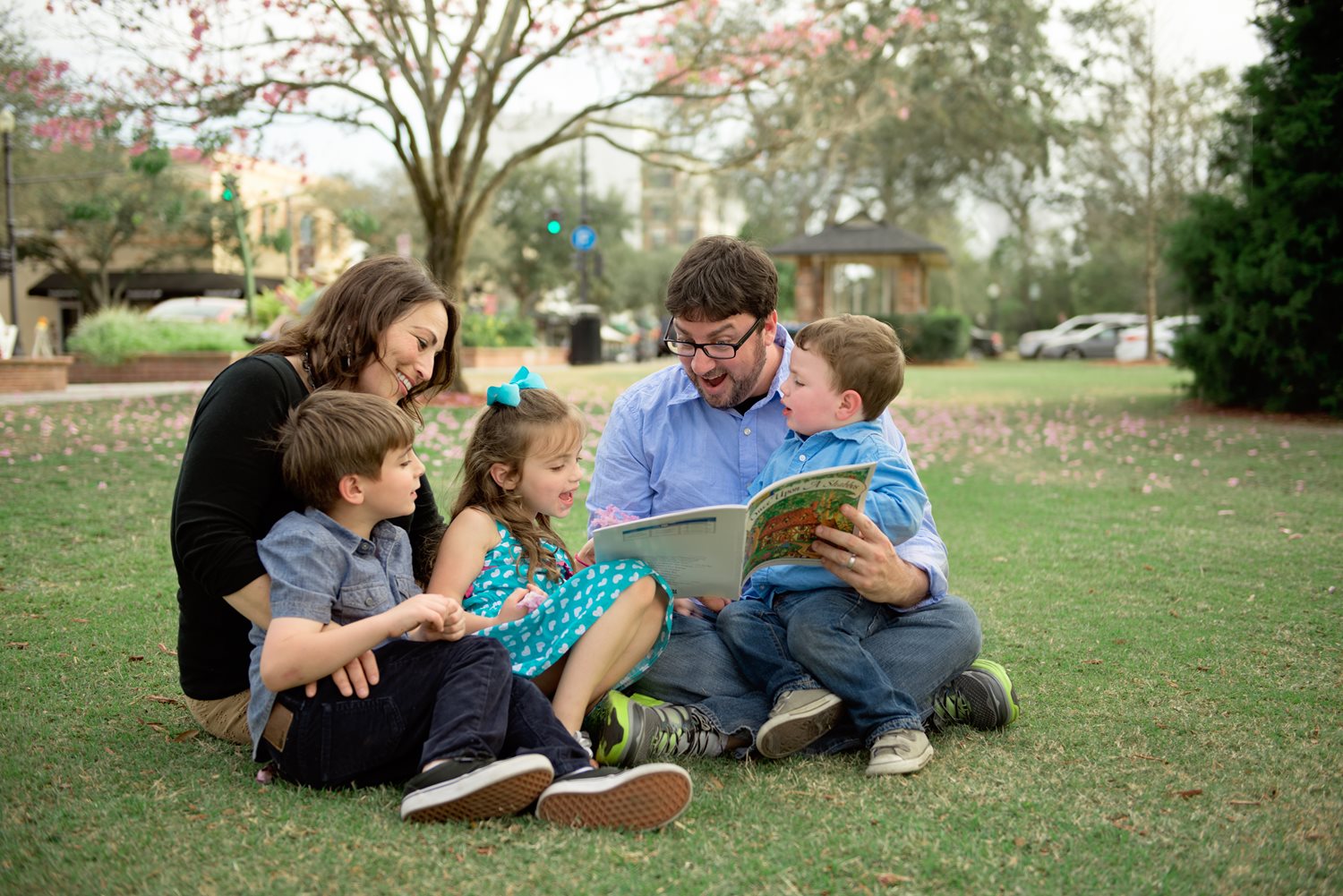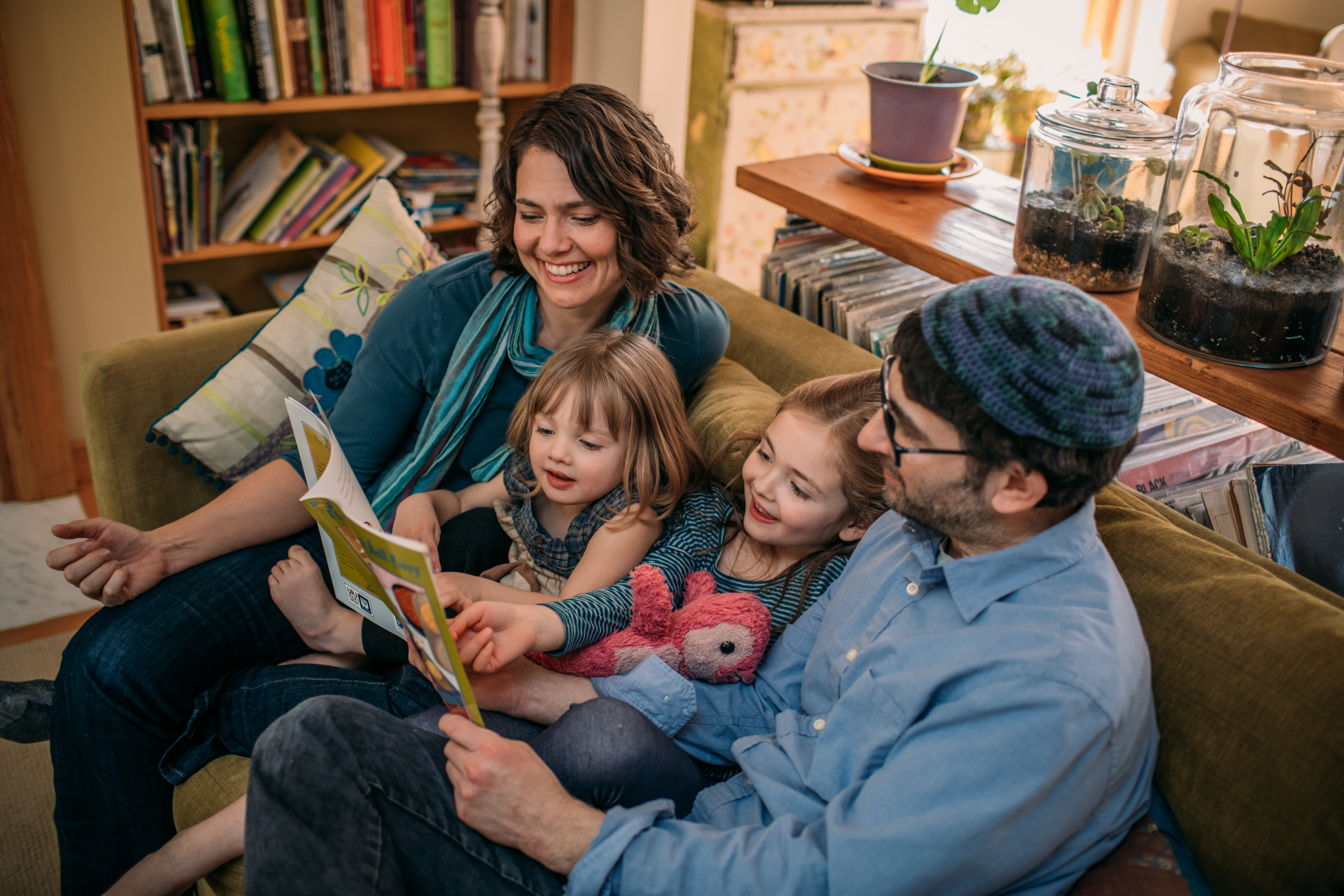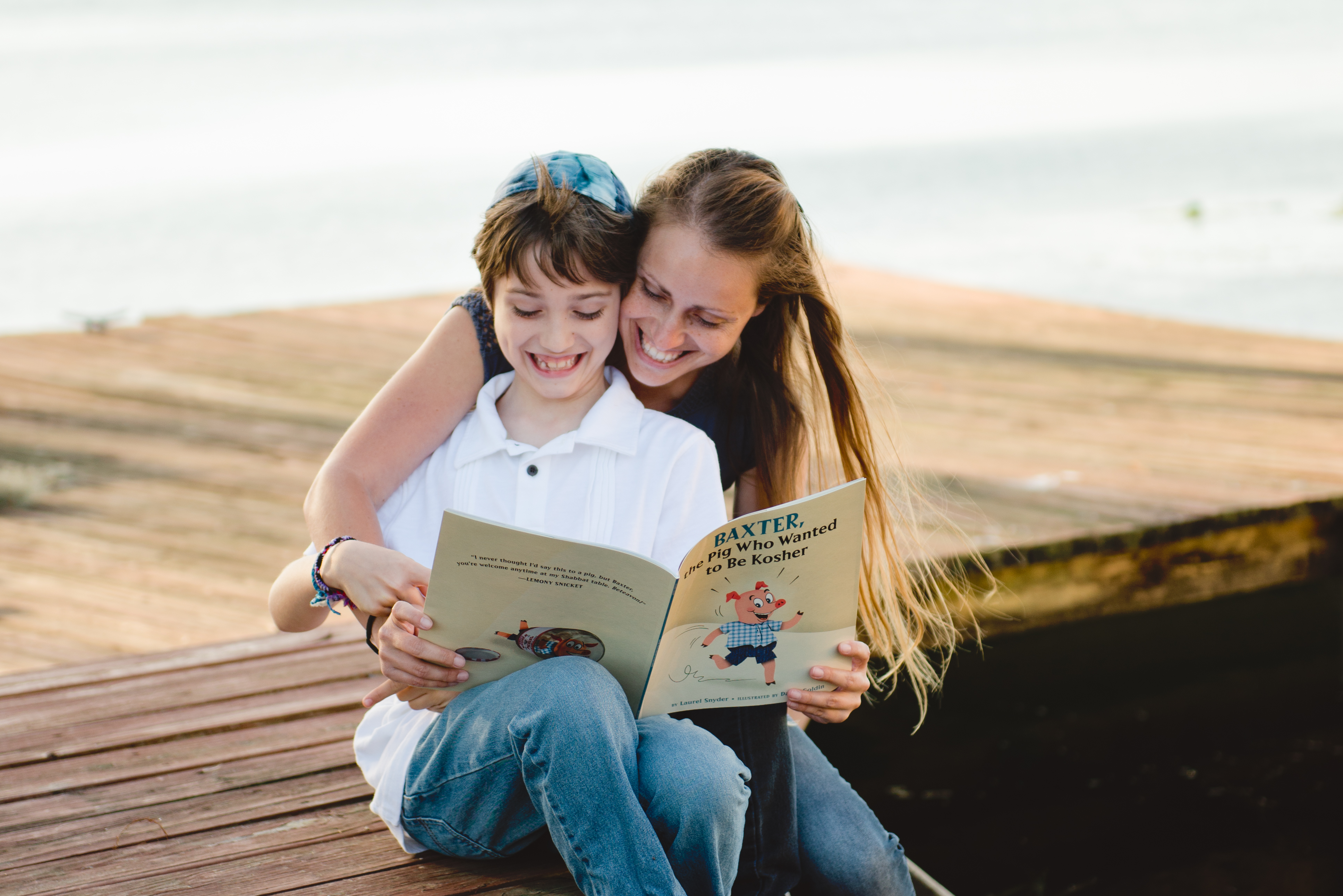
For parents, aunts, uncles, bubbes, zaydes, saftas, sabbas, nannies, babysitters, and well, any grown-up with special kiddos in their life, there’s nothing quite like the feeling of bedtime story snuggle time. In addition to that special bonding moment and emotional recharge time, reading aloud with kids—even after they can read on their own—also builds their comprehension and critical thinking skills.
Reading aloud together can be a blast, and it doesn’t have to be reserved strictly for bedtime. In fact, getting lost in a story with older kids is a perfect way to spend a rainy afternoon, play pretend, or expend some energy before settling down for dinner. Check out some of our favourite read-aloud tips for kids of different age groups below.
FOR BABIES & TODDLERS:

Respond to Their Voice
Whether your child just babbles and coos, or says a few words, respond to them when they vocalise while you’re reading. Repeating babble noises back to your child actually helps their own speech development, plus shifting the focus to them makes your child feel special.
Put Them in the Book
Insert your child’s name into the book. If you’re reading, Happy, Happy for example, on the final page, take a second to sing “Happy Birthday” to your child to match with the illustration of the baby’s birthday party.
Point and Describe
Books for small children are sparse in words but rich in pictures—and there’s a reason for that. Explore the book with your baby or toddler. Describe the illustrations, point out interesting images, and count parts of the scenery or characters together. As they grow, your child will start to point and describe pieces of the book to you!
Rinse and Repeat
Small children often want to read the same book over and over (and over). Go with it. Familiarity feels good to little ones, especially babies and toddlers. Plus, as they follow along with the story and start to recognise favourite moments or words, their own pre-literacy skills are building. So go ahead, crack the spine on Sammy Spider one more time.
FOR PRESCHOOLERS & RECEPTION KIDS:

Do the Voices
And get them to do the voices too. You don’t need to be a professional voice-over artists to have fun with silly voices while you read. Go high or go low, or get scratchy. Ask your child to imitate you. Giggles will abound.
Act it Out
To be fair, this tip is super fun with children of any age—yes, even tweens. Take a book like It Could Always Be Worse and build a small pillow fort in a bedroom—then start packing it full of family members and stuffed animals to follow along with the story. Not sure where to start with acting out a story? Grab a puppet, or just use your hand, to add emphasis as you read.
FOR INDEPENDENT READERS:

Take Turns
Trade off reading passages or chapters together. As your reader’s fluency grows, this is a fun way for them to practice, show off their newly found skills, and give you a break. If your child isn’t super comfortable reading aloud on their own yet, pause once in a while to let them sound out a word with you or fill in what they think will happen next.
Find Tie-ins to Real Life
Did you just read a story about apples and honey? Talk about your family’s recent or upcoming apple picking trip. Does your child love stories about historic figures or bold characters? Learn more at the local library together or visit, in real life or online, a monument or marker to learn more about that figure.
Embrace the Big Words
A child's vocabulary grows as they read. Don't shy away from new words--take the time to explain them. Don’t know a term? Look it up together.
FOR TWEENS:

Get in to Audiobooks
Some stories are just meant to be heard performed or read aloud. If your kids enjoy reading but grapple with reading aloud, find audiobooks to enjoy together. You can even record your own using the “Voice Memos” function on your phone.
Start a Family Book Club
Pick books to read together. You can form an informal family book club or set aside an hour a week to read in a special space with snacks and treats together. Periodically stop to share your favourite passages aloud. For more on the benefits of reading aloud with tweens, take a look at this piece from Brightly.
What are your favorite read-aloud tips? Share yours with us on Facebook
« Find more activities, book lists, interviews, and recipes
September 15, 2017